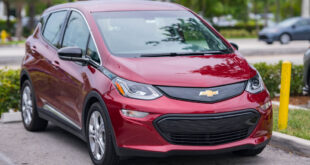Electric Car Insurance Rates: Save Money and Understand Coverage Electric car insurance rates are a crucial consideration for anyone owning or planning to purchase an electric vehicle (EV). As EVs grow in popularity, understanding how insurance rates work, what factors influence them, and how to find affordable coverage is essential. This guide will break down everything you need to know about electric car insurance rates while offering actionable tips to save money.
What Are Electric Car Insurance Rates?
Electric car insurance rates refer to the premium you pay for insuring an electric vehicle. These rates can differ significantly from traditional gas-powered vehicles due to various factors, such as the car’s value, repair costs, and safety features.
Factors Affecting Electric Car Insurance Rates
1. Vehicle Value
Electric cars tend to have a higher market value compared to gas-powered cars, leading to potentially higher insurance premiums.
2. Repair Costs
Specialized parts and technology in electric cars, such as batteries and charging systems, often cost more to repair or replace.
3. Safety Features
Many electric vehicles come equipped with advanced safety features that can lower insurance rates by reducing the risk of accidents.
4. Driving Habits
Your annual mileage and driving record significantly impact insurance premiums. Safe drivers typically enjoy lower rates.
5. Location
Urban areas with higher traffic congestion or theft rates may result in higher premiums compared to rural areas.
6. Battery Type
Some insurers consider the battery’s longevity and potential environmental risks when calculating premiums.
7. Government Incentives
In some regions, government subsidies for electric vehicles may extend to insurance benefits, helping lower costs.
How to Find the Best Electric Car Insurance Rates
1. Compare Quotes
Shop around and compare quotes from multiple insurance providers to find the best deal.
2. Look for Specialized EV Policies
Some insurers offer tailored policies specifically for electric vehicles, which may include perks like charging station coverage.
3. Bundle Policies
Combining your home and auto insurance with one provider can lead to discounts.
4. Ask About Discounts
Many insurers offer discounts for safe driving, low annual mileage, or equipping your car with anti-theft devices.
5. Increase Your Deductible
Opting for a higher deductible can lower your monthly premiums, but make sure you can afford the out-of-pocket costs in case of a claim.
Common Misconceptions About Electric Car Insurance Rates
- “EV insurance is always more expensive.”
While EV insurance rates can be higher, discounts and incentives often offset the costs. - “Insurance for EVs doesn’t cover the battery.”
Comprehensive coverage usually includes the battery, but check your policy specifics. - “All insurers treat EVs the same.”
Insurers have different criteria for calculating premiums. Some specialize in EV coverage, offering better rates.
Tips to Save Money on Electric Car Insurance
- Install an anti-theft system.
- Maintain a clean driving record.
- Take advantage of multi-policy discounts.
- Park in secure locations to reduce risk.
- Limit your annual mileage.
- Opt for a higher deductible.
- Use telematics or usage-based insurance programs.
- Research government incentives in your area.
- Enroll in defensive driving courses.
- Regularly review and update your policy.
FAQs About Electric Car Insurance Rates
- Are electric cars more expensive to insure than gas cars?
Often, but this depends on the vehicle’s value, safety features, and location. - Does insurance cover EV batteries?
Yes, comprehensive insurance typically covers batteries. - Can I get discounts for owning an electric car?
Many insurers offer green discounts for environmentally friendly vehicles. - Do charging stations affect insurance rates?
Not directly, but policies may cover damages to home charging equipment. - What happens if my battery is damaged?
Battery repair or replacement is usually covered under comprehensive insurance. - Is telematics useful for EV insurance?
Yes, telematics can lower rates by monitoring safe driving habits. - Can I insure a used electric car?
Absolutely, but premiums will vary based on the car’s condition and value. - Are there policies for long-range EVs?
Many insurers offer tailored policies for EVs, including those with extended ranges. - Do EV insurance rates differ by state?
Yes, local regulations and risk factors influence rates. - How can I lower my premiums for an EV?
Shop around, use discounts, and adopt safe driving practices.
Conclusion
Electric car insurance rates may seem daunting, but understanding the factors that influence them and leveraging available discounts can make a significant difference. By comparing providers, exploring specialized policies, and maintaining a clean driving record, you can secure affordable coverage for your electric vehicle.
As electric vehicles continue to revolutionize transportation, insurance providers are adapting their offerings to meet the needs of EV owners. Take the time to explore your options, and you’ll find coverage that protects your investment while keeping your budget in check.
 oto car insurance used car repair
oto car insurance used car repair
